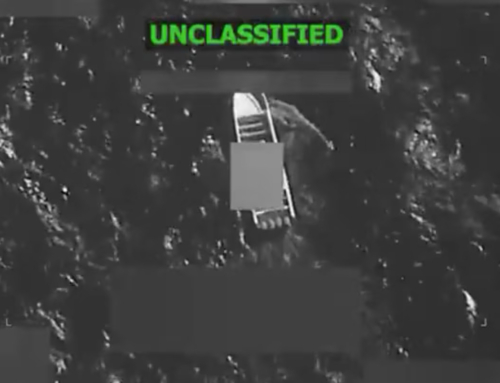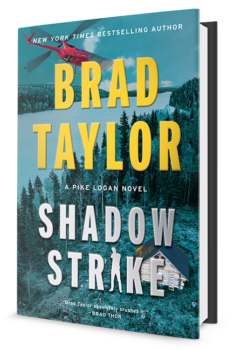Today marks the fortieth anniversary of the Watergate break-in, and I find it strangely symbolic given the ongoing debate about the current spate of leaks plaguing this administration. Watergate was the breaking point for any restraint in the press; the end of responsible journalism where writers weighed the ramifications of a story before publishing it. Prior to Watergate, American journalists felt they had an obligation both to their newspaper and to their country. Now, it’s a free-for-all, the only obligation being to make as much of a news sensation as possible, using whatever information you have. Not only do modern journalists not seem to care, it’s as if they feel it’s their duty to publish everything they find, regardless of the consequences to national security.
Don’t get me wrong, I’m not implying that the reporting of Watergate was bad. It most assuredly was not. The story needed to be told and the Washington Post did a service to the nation by doing so. However, the lionization of Woodward and Bernstein has had the unintended consequence of raising a generation of journalists lacking an ethical foundation. It’s like they only saw the method and the end state, and not the evolution of the story itself. The editorial team at the Washington Post DID in fact heavily weigh each report in the Watergate series, honestly looking at what damage they might engender to the national fabric, something that now seems as quaint as a quilting bee. That part of the Watergate saga seems to have been lost. All that remains is the nagging desire to have someone of Robert Redford’s caliber play the modern day “journalist” in a movie, regardless of the damage done getting there.
Both sides of the aisle are demanding the heads of whoever is responsible for the latest intelligence leaks, with everyone focused on the source. This is absolutely fine and completely necessary, but why isn’t anyone chastising those reporting the classified information in the first place? It’s time they are also taken to task.
I’ve blogged about this before, but I’ve lost all hope for the United States press corps to make any judgment on what constitutes a reportable news story and what constitutes a legitimate threat to American lives. They’ll revert instead to whatever TMZ-like titillation they can achieve to maintain “relevance” in the age of Wikileaks. It’s disgusting, and a little sad. In an effort to compete with sleazy blog sites, they’ve become one. I honestly have no doubt that had a reporter found out about the bin Laden raid before it happened, it would have been reported breathlessly as soon as he could find a WiFi hotspot. “Osama bin Laden located, SEALS set to raid next week!”
Truthfully, I think a story like that would have had less of an impact on our national security than the two stories that prompted the latest investigations.
One exposed the intelligence operation that foiled the underwear bomb plot in May. In so doing, it also exposed the extent of our penetration of Al Qaida by our allies, since the agent in question was working for the Saudis under the tutelage of British MI-6, complete with the asset carrying a United Kingdom passport. Needless to say, I don’t think they’re too happy about that, and will be much less likely to help us in the future. Especially since this isn’t the first time the U.S. press has reported information that not only compromises the U.S., but compromises our allies and their intelligence communities.
The other exposed our involvement with Israel implanting the STUXNET virus into Iranian centrifuges to slow down their nuclear ambitions – an operation that is still ongoing. I wish there was an app that caused an explosion to go off when you read that sentence because the simplicity of the facts doesn’t do it justice. Read it again. It’s pretty incredible. The reporter actually exposed an ongoing covert action against a very real nuclear threat from a nation hostile to us and its entire region. A nation that routinely chants “Death to America”. And NOBODY has raised a single question about the integrity of the journalist – in this case, an individual. If this was World War II, the reporter would more than likely be in jail for treason. Instead, he’s all over the news, proud of his “Woodward” moment and chafing at the bit that anyone would say it was a deliberate Obama leak. Why, it was his intrepid reporting, dammit! He probably sits alone at night in his jockey shorts fantasizing about Brad Pitt portraying him in the movie, heedless of the damage he’s caused to the protection of our nation. Oh, wait. He’s a reporter. So he’s got the first amendment. I forgot, that protects you from having a conscience, but it shouldn’t protect you completely from the damage you’ve caused to American security.
Apparently it does. Simply calling yourself a reporter gives you some sort of Avenger’s cloak of immunity; free to spew whatever top-secret stuff you can glean. Bradley Manning’s defense team is probably watching what’s happening, thinking all he needs to do now is say, “You can’t prosecute me for Wikileaks. I’m a journalist and this is what we do.”
Neither one of these stories involved any malfeasance on the part of the U.S. Government. There was no burning reason to expose either operation. No corruption or cover up. Instead, both immeasurably harmed the United States’ ability to protect its own citizens.
I’ve said it before, and I’ll say it again. I am absolutely weary of giving the press a free pass on harming national security when reporting classified operations. Being a reporter doesn’t absolve you of your responsibilities as a United States citizen. If it’s okay to put someone in jail for leaking the information, then surely there should be some repercussions for the person reporting it, even if it’s simply reviling them publicly.
Yeah, I get the first amendment, and would never infringe on it. In fact, I’m one of the few who’s seen blood shed to protect it, but the American press is getting a little ridiculous. It’s time for them be a little introspective and come to some common ground on what should or should not be reported; instead of trying to outdo each other by exposing bigger secrets than the competition.
You want to be Woodward and Bernstein, then act like them beyond simply finding a Deep Throat. Weigh the ramifications of your story before you publish it.










Brad,
I have to disagree with you somewhat on this one.
First, while I think it is true to some extent that the story gets published in order to make money, I think it is more about the ego of the “journalist” and the publisher.
From my view point, these stories are written and published so that the “reporter” and publication can say “Look what we found out…. we must be great journalists.”
Unfortunately, I think the majority of the American people are more interested in the latest celebrity arrest/divorce/marriage/cheating scandal/etc. than they are in world events. If the “news media” did not run any stories about world events, but rather replaced the “world news” section with “celebrity news”, I doubt they would get very much “push-back” from the majority of their audience.
Secondly, and maybe as importantly, those groups/individuals whose beliefs match that of the news media use these “journalistic reports” to “prove” their point. These are the same publications that give large amounts of support (either money, “coverage”, or both) to the individuals (i.e. politicians) who think the way they do. The relationship between the media and the politicians seems to be a “you scratch my back and I’ll scratch your back” type of thing. I would be surprised if many of the “leaks” did not come directly from the individuals who were supported by the “news media” that reported the story in the first place. It also seems that today if a politician cannot get “traction” for their idea, they “leak” something to the news media in order to get coverage and to allow them to jump up and say “see what the news reported as an issue… that is exactly what I have been trying to get everyone to listen to me about”.
Sadly, it seems to me that in the last 30 years (as long as I can remember paying attention to the “news”), that the “mainstream news” (written, TV, or radio) is not an unbiased source of information, but rather a series of op-ed pieces touted as being a “fair and balanced” distribution of information. The only alternative seems to be outlets that actually tell you that they are either far-left or far-right “fanatics”. At least with these guys, you know where they are coming from and what their “agenda” is.
Eric
Brad,
Great blog. As a former reporter myself I pretty much agree. Most of what passes for fact in the mainstream media today is opinion, or opinion supported by select facts.
I too am troubled by the constant leaking of what our intelligence assets supposedly are up to. Face it, some things are meant to be secret. There is a subset of citizens that don’t realize or like the fact that terrorists should be dealt with in a very brutal way as you all too well are aware.
The press’ constant defense is that if they found out, it can’t be much of a secret. Sorry, but that’s a poor defense and it certainly should not absolve someone of betraying secrets.